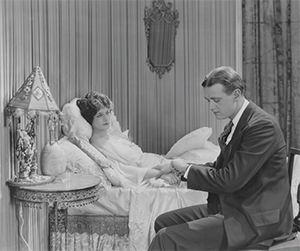Editor’s note: This is part 2 of a two-part series on ethics in the operating room. The first installment was published in the October 2016 issue.
Explore This Issue
January 2017Scenario
The ethical scenario published in part 1 of “Ethics in the Operating Room” imagined that you served as chair of your medical center’s ethics committee and provided guidance and recommendations to the center’s leadership on issues of ethical concern in the operating room.
In that scenario, your comments to the leadership dealt with informing patients about the roles of the various surgical team members participating in the patient’s surgery, along with the ethics of overlapping, concomitant/concurrent, and sequenced surgical procedures. The next major topic on which the leadership would like your input involves the professional and ethical care of patients in the perioperative period, particularly the interaction of the surgeon with the patient at the bedside.
Discussion
The specialty of otolaryngology-head and neck surgery has, for various reasons, moved away from inpatient care to predominantly outpatient care, save for head and neck oncology, neurotology, trauma surgery, and specific circumstances of other subspecialties for which patients are hospitalized longer than overnight.
Generally speaking, however, hospital rounds with faculty, residents, and medical students in our specialty have largely been replaced by in vitro rounds in a conference room, involving Powerpoint presentations, imaging studies, patient photographs, and other data pertinent to a patient’s disorder. Teaching in the presence of patients can still take place during the clinic evaluation, which can be referred to as “chair-side rounds,” and in the emergency center, where the focus is generally on expediency.

© Everett Collection / SHUTTERSTOCK.COM
When it comes to strengthening the patient-physician relationship, however, there may be no better way to do so than with the true “bedside” encounter, when the patient is most vulnerable and the physician can be most caring and compassionate.
The unique circumstances of the perioperative period should be viewed from the patient’s perspective to get a sense of the anxieties experienced by most surgical patients as they are being prepared for surgery, entering the operating room, and then recovering from the surgery. The compassionate surgeon can help alleviate these concerns with her/his bedside manner. The ethical responsibility to address the vulnerabilities of surgical patients rests not just with the surgeon, but with the entire team caring for the patient in the perioperative period.
Because the otolaryngologist-head and neck surgeon is the de facto leader of the patient care team, it falls to her/him to set the proper expectations for an ethical and professional interaction with the patient. It is important to resist the desensitization and cynicism that can be observed in all quarters of the surgical profession, which can lead to an indifference that can be sensed by patients at the time they most require caring attention at the bedside. This responsibility is well stated in the Code of Ethics of the American Academy of Otolaryngology–Head and Neck Surgery: “The Physician-Patient Relationship—‘Each patient must be treated with respect, dignity, compassion, and honesty’” (available at entnet.org/content/ethics).